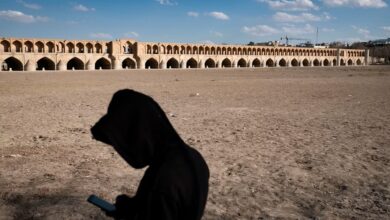
The death penalty has failed to reduce drug trafficking in Iran, a senior Iranian judiciary official said on Saturday shortly before the scheduled execution of 12 people for narcotics-related offences.
His criticism was unusual in a judiciary that has long been a bastion of the hardline security establishment in the Islamic Republic, which carries out more executions per capita than any other country. Nearly 1,000 prisoner were put to death in 2015, most of them for drug trafficking.
Most narcotics are smuggled into Iran along its long, often lawless border with Afghanistan, which supplies about 90 percent of the world's opium from which heroin is made.
"The truth is, the execution of drug smugglers has had no deterrent effect," Mohammad Baqer Olfat, deputy head of judiciary for social affairs, was quoted as saying by the semi-official Tasnim news agency.
"We have fought full-force against smugglers according to the law, but unfortunately we are experiencing an increase in the volume of drugs trafficked to Iran, the transit of drugs through the country, the variety of drugs, and the number of people who are involved in it," Olfat said.
He said he had suggested to the judiciary chief that rather than the death penalty, traffickers should serve long prison terms with hard labor.
Mohammad-Javad Larijani, the secretary of Iran's Human Rights Council and a brother of the powerful judiciary chief, said in 2015 that more than 90 percent of executions in the country were for drug-related crimes.
He said the death penalty has not led to a significant fall in drug-related crimes and that the policy must be re-evaluated.
The Islamic Republic seized 388 tonnes of opium in 2012, around 72 percent of all such seizures globally, but says it has lost many security personnel in skirmishes with drug traffickers in volatile regions bordering Afghanistan and also Pakistan.
The United Nations has repeatedly praised Iran's battle against narcotics trafficking but opposed its death penalty.
The United Nations special rapporteur on human rights in Iran urged Tehran on Friday to halt the execution of 12 people on drug-related offences scheduled for Saturday.
"It is regrettable that the [Iranian] government continues to proceed with executions for crimes that do not meet the threshold of the 'most serious crimes' as required by international law," Ahmed Shaheed said in a statement.
Given Iran's large number of executions, some countries including Britain and Denmark have stopped providing funding for the United Nations drug control program in Iran.




